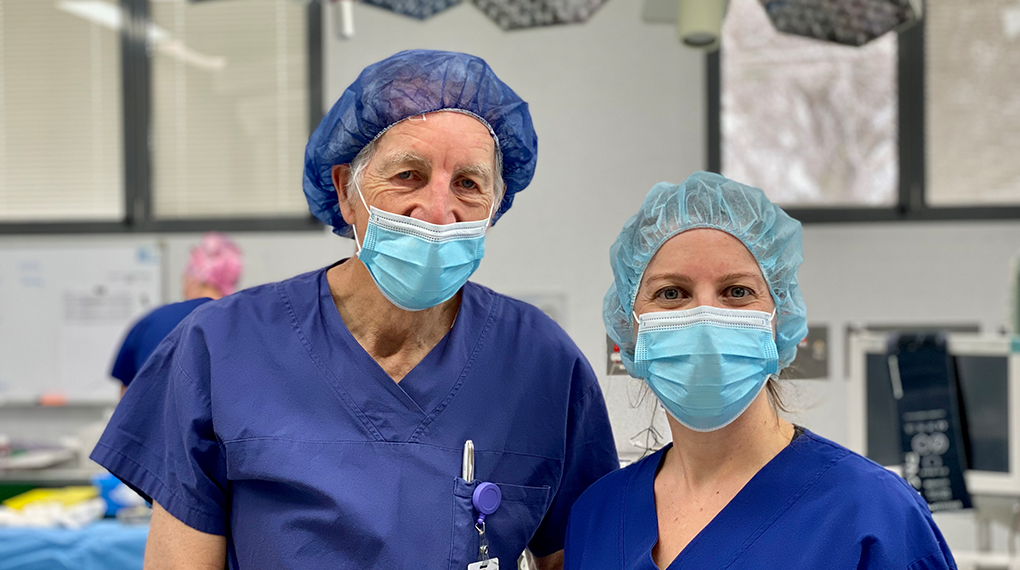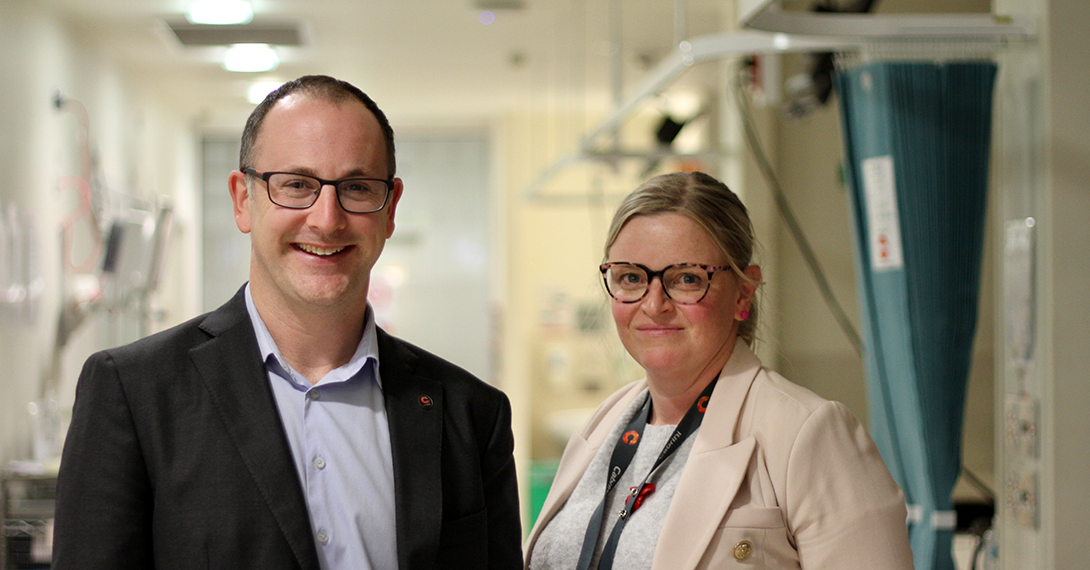About the medical oncology research department
The medical oncology research department leads a broad translational cancer research program building from Cabrini being the second largest cancer service in Victoria—and the largest private cancer service in Australia. Our dedicated and experienced team of academic and clinician researchers are invested in translational bench-to-bedside advances in precision medicine.
The research program includes clinical trials assessing the latest advances in therapeutics, the development of preclinical breast and ovarian cancer models to advance biological discovery and identify new therapeutics and targets, cancer exercise laboratory testing to understand the relationship and benefits of exercise in cancer, clinical evaluation of cancer healthcare models, and using health informatics and patient-reported outcome measures to identify ways we can improve the patient experience through better quality of life, less toxicity, and better patient survivorship.
Our program provides significant benefits for patients, including access to treatments not yet in the marketplace, close monitoring and testing, and collection of valuable information that can help others.
Through translational research, we are advancing precision medicine to improve the diagnosis, treatment, management and prevention of cancer.
Team members
Research themes
- Antill Y, Kok PS, Robledo K, Yip S, Cummins M, Smith D, Spurdle A, Barnes E, Lee YC, Friedlander M, Baron-Hay S, Shannon C, Coward J, Beale P, Goss G, Meniawy T, Lombard J, Andrews J, Stockler MR, Mileshkin L; Australia New Zealand Gynaecological Oncology Group (ANZGOG). (2021) Clinical activity of durvalumab for patients with advanced mismatch repair-deficient and repair-proficient endometrial cancer. A nonrandomised, phase 2 clinical trial. J Immunother Cancer. 9(6):e002255. doi:10.1136/jitc-2020-002255.
- Bennett C, Davis ID, Hamid AA. (2020) Nursing implications of recent changes in management practices for metastatic prostate cancer. Semin Oncol Nurs. 36(4):151047. doi:10.1016/j.soncn.2020.151047.
- Body A, Wong R, Shapiro J, Jalali A, McLachlan SA, Ananda S, Lipton L, Cooray P, Gibbs P, Lee B, Lee M. (2020) Use and outcomes of chemotherapy for metastatic pancreatic cancer in Australia. Intern Med J. doi:10.1111/imj.15094.
- Choueiri TK, Powles T, Burotto M, Escudier B, Bourlon MT, Zurawski B, Oyervides Juárez VM, Hsieh JJ, Basso U, Shah AY, Suárez C, Hamzaj A, Goh JC, Barrios C, Richardet M, Porta C, Kowalyszyn R, Feregrino JP, Żołnierek J, Pook D, Kessler ER, Tomita Y, Mizuno R, Bedke J, Zhang J, Maurer MA, Simsek B, Ejzykowicz F, Schwab GM, Apolo AB, Motzer RJ; CheckMate 9ER Investigators. (2021) Nivolumab plus cabozantinib versus sunitinib for advanced renal-cell carcinoma. N Engl J Med. 384(9):829-841. doi:10.1056/NEJMoa2026982.
- Martinez Chanza N, Bernard B, Barthelemy P, Accarain A, Paesmans M, Desmyter L, T’Kint de Roodenbeke D, Gil T, Sideris S, Roumeguere T, Hamid AA, Sweeney CJ. (2021) Prevalence and clinical impact of tumor BRCA1 and BRCA2 mutations in patients presenting with localized or metastatic hormone-sensitive prostate cancer. Prostate Cancer Prostatic Dis. doi:10.1038/s41391-021-00397-2.
- Mendis S, Anand S, Karasinska JM, Dasari A, Unger JM, Gothwal A, Ellis LM, Varadhachary G, Kopetz S, Overman MJ, Raghav K, Loree JM.(2021) Sex representation in clinical trials associated with FDA cancer drug approvals differs between solid and hematologic malignancies. Oncologist. 26(2):107-114. doi:10.1002/onco.13534.
- Chew NJ, Lim Kam Sian TCC, Nguyen EV, Shin SY, Yang J, Hui MN, Deng N, McLean CA, Welm AL, Lim E, Gregory P, Nottle T, Lang T, Vereker M, Richardson G, Kerr G, Micati D, Jardé T, Abud HE, Lee RS, Swarbrick A, Daly RJ. (2021) Evaluation of FGFR targeting in breast cancer through interrogation of patient-derived models. Breast Cancer Res. 23(1):82. doi: 10.1186/s13058-021-01461-4.
- Kim SY, Kissane DW, Richardson G, Senior J, Morgan J, Gregory P, Birks S, Ooi C, Lipton L, Antill Y, Vereker M, Michael N, Bobevski I. (2021) The role of depression and other psychological factors in work ability among breast cancer survivors in Australia. Psychooncology. doi: 10.1002/pon.5802
Collaborations
MONASH BIOMEDICINE DISCOVERY INSTITUTE, MONASH UNIVERSITY
- Prof Helen Abud
- Dr Thierry Jarde
- Dr Antonella Papa
- Prof Roger Daly
- Prof Christina Mitchell
MEDICITY
VICTORIAN LUNG CANCER REGISTRY
New discoveries and research focus
Exercise makes an impact in cancer

Exercise can play an incredibly important role in supporting the management of cancer related health outcomes and improving patient wellbeing.
In 2021, Cabrini Research established a state-of-the-art exercise laboratory. We are one of few hospitals in the world with an exercise lab dedicated to cancer patients. Dr Eva Zopf and Kelcey Bland have recently joined our team to lead the oncology exercise program.
Their research will focus on the benefits of exercise across every stage of cancer, its ability to improve treatment tolerability, response and recovery, how it plays a role in the mental and physical health of patients, and whether it can improve survival.

 Professor Gary Richardson OAM
Professor Gary Richardson OAM